Ratings
Series Details
Seasons: 39
Total Episodes: 543
Creators:
Networks: BBC Two
Status: Returning Series
First Air Date: Oct 30, 1983
Recent Air Date: Mar 20, 2020
Run Time: m
In Production: Yes
Original Language: English
Age Rating: TV-G
Website: Link
Production Companies: BBC Studios , BBC Studios Natural History Unit , BBC
Genres
Keywords
People Rated This
None of your friends have rated this title yet
Watch Natural World
Stream Sources
Synopsis
No Synopsis for this season yet
Episodes
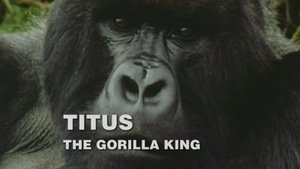
Episode 1
11 November 2008 - Titus: The Gorilla King
Abandoned as a baby, removed from normal gorilla family life as a youngster - so profound were the misfortunes that Titus suffered in his early years that no gorilla scientist could have predicted his eventual rise to power. His moving life story is pieced together here for the first time, based on archive film and the memories of field workers who have studied the mountain gorillas since Dian Fossey's pioneering work more than 40 years ago. At 33 years of age, Titus is not just one of the most powerful Silverbacks in Rwanda's Virunga Mountains, he is possibly the most remarkable gorilla ever known. His life story is as full of drama, intrigue and tragedy as any human soap opera. Against a stunning backdrop of misty volcanic peaks cloaked in bamboo and giant lobelia, Titus has successfully steered his family group through thick and thin. Now he is under pressure again. With his ally-turned-rival, Kuryama, jockeying for position, is the final chapter in Titus's extraordinary reign about to occur?
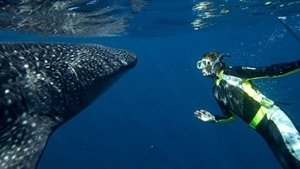
Episode 2
18 November 2008 - Whale Shark
Beginning at the fabulous coral reef of Ningaloo in Western Australia, intrepid marine biologist Mark Meakin attempts to unravel the mysterious wanderings of the biggest fish in the sea. Whale sharks grow to over 12 metres long but are gentle, filter-feeding giants; even Mark's five-year-old son can swim alongside them. Yet no-one knows where they go once they leave Ningaloo's turquoise lagoons. Using satellite tags and photo IDs, Mark tracks them to the white coral beaches of the Seychelles and the tropical jewel of Christmas Island, where bright-red land crabs begin their annual migration. It's hard work, taking in 20 failed satellite tags and countless frustrating dives, before Mark makes a breakthrough which doesn't just add to our understanding of these huge 'dinosaur fish' but offers crucial information about how the whale sharks of Ningaloo can be protected better.
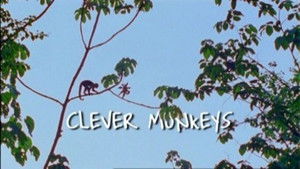
Episode 3
25 November 2008 - Clever Monkeys
David Attenborough's entertaining romp through the world of monkeys has a serious side: for when we look at monkeys we can see ourselves. From memory to morality, from 'crying wolf' to politics, monkeys are our basic blueprint. Pygmy marmosets 'farm' tree sap; bearded capuchins in Brazil develop a production line for extracting palm nuts; white-faced capuchins in Costa Rica tenderly nurse the victims of battle; and in the Ethiopian highlands a deposed gelada baboon has got the blues.
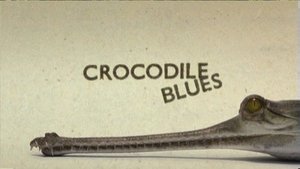
Episode 4
02 December 2008 - Crocodile Blues
Another stunning look at the wonders of wildlife as Natural World tonight seeks out the Gharial crocodile. This mighty reptile, which can grow up to 20ft in length and tip the scales at one ton, evolved with the dinosaurs more than 150 million years ago. However, it’s now on the brink of extinction as the largest critically endangered animal on the Indian subcontinent. Filmed over a 12-month period, reptile expert and conservationist Rom Whitaker set out on a mission to solve the mystery of why numbers have rapidly declined. Currently, fewer than 200 breeding adults live in Indian and Nepalese sanctuaries that aim to ensure the future of the species via a captive breeding programme. From the safety of your armchair, enjoy Whitaker’s fascinating footage of the Gharial.
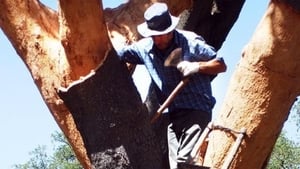
Episode 5
09 December 2008 - Cork - Forest in a Bottle
Every time we weigh up which bottle of wine to buy, we hold the fate of nightingales, rare black storks, secretive wild cats and one of the world's most remarkable trees in our hands. It has all to do with the stopper. If it is cork, it probably came from the bark of one of the ancient cork oak trees from the Montados, in the Alentejo region of Portugal.
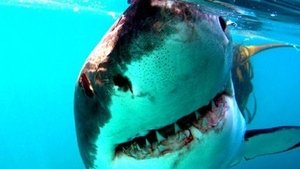
Episode 6
02 January 2009 - Great White Shark: A Living Legend
Wildlife film. South African naturalist Mike Rutzen is crazy about great white sharks. He never saw Jaws, so he doesn't share the terror that makes these sharks the world's most feared predator.
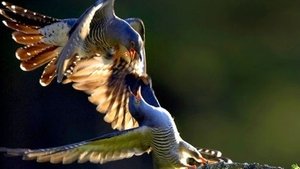
Episode 7
09 January 2009 - Cuckoo
The sound of the cuckoo is to many the very essence of spring, yet behind the magical call is a bird that is a cheat, a thief and a killer. Just how does the cuckoo trick other birds into accepting its eggs and raising its young? Why don't the duped foster parents react as they watch the baby cuckoo destroy their own eggs and chicks? And why do they work so relentlessly to feed a demanding chick that looks nothing like them and will soon dwarf them?
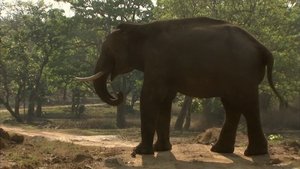
Episode 8
16 January 2009 - The Mountains of the Monsoon
This moving film reveals the differing fortunes of a mother polar bear and a mother grizzly bear, and their new-born cubs, in a rapidly-changing world. The shrinking Arctic ice may be making life much tougher for polar bears, but it is offering new opportunities for grizzly bears to the south. Where once the lives of white and brown bears could not have been more different, in summer-time they now meet along shores and islands almost all the way to the North Pole. Amazingly they have even interbred. It Is a remarkable story of how bears, ever intelligent and resourceful, are adapting to a warming world.
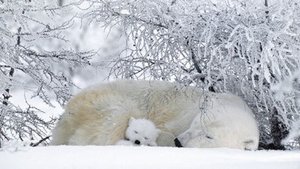
Episode 9
23 January 2009 - Polar Bears & Grizzlies: Bears on Top of the World
This moving film reveals the differing fortunes of a mother polar bear and a mother grizzly bear, and their new-born cubs, in a rapidly-changing world. The shrinking Arctic ice may be making life much tougher for polar bears, but it is offering new opportunities for grizzly bears to the south. Where once the lives of white and brown bears could not have been more different, in summer-time they now meet along shores and islands almost all the way to the North Pole. Amazingly they have even interbred. It Is a remarkable story of how bears, ever intelligent and resourceful, are adapting to a warming world.
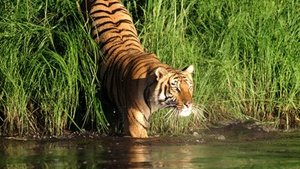
Episode 10
30 January 2009 - Man-Eating Tigers of the Sundarbans
Tiger experts in Bangladesh have a problem: how can they encourage local people to protect the beautiful and endangered Bengal tiger when these animals have developed a taste for human flesh? The Sundarbans forest is one of the biggest tracts of mangrove forest left in the world. It is rich in wildlife and provides important forest resources for communities living around its edge. But up to 50 forest workers are killed by tigers each year and now the boldest animals are sneaking into villages at night. This gripping film reveals the tension and heartache of living so close to a killer cat and follows the bold attempt by one village to teach street dogs to scare away the rogue tiger on their doorstep.
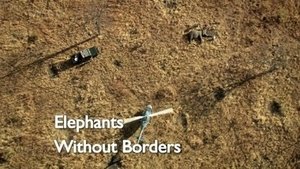
Episode 11
06 February 2009 - Elephants without Borders
Botswana's elephants are doing very well, too well perhaps. People are worried that too many elephants will damage their fragile desert home and have suggested that up to 60,000 should be culled. Researcher Mike Chase studies ancient elephant migration routes - he has tracked them across vast deserts, desolate salt pans, and Angolan minefields. Now he thinks he has a plan that could safeguard their future.
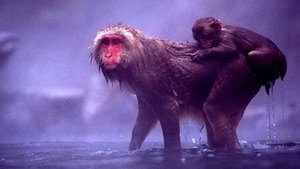
Episode 12
13 February 2009 - Snow Monkeys
n 1970, a picture of a snow monkey bathing in a hot spring graced the cover of Life Magazine. Ever since, Japan's hot-tubbing primates have been protected and well fed for the enjoyment of tourists and photographers - they have become international superstars of the natural world. But while their unique lifestyle has brought fame, the rest of Japan's snow monkeys lead very different lives, enduring incredible hardships as they fight for survival in their beautiful but unforgiving mountain home.
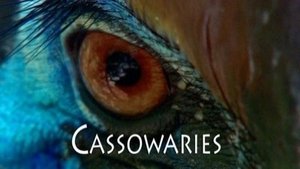
Episode 13
19 February 2009 - Cassowaries
This film follows the dramatic attempts to save these endangered giant birds, and reveals their fascinating natural history for the first time. Narrated by David Attenborough.
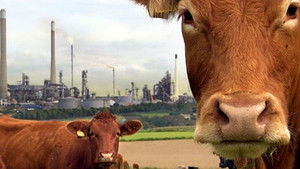
Episode 14
20 February 2009 - A Farm for the Future
Wildlife film maker Rebecca Hosking investigates how to transform her family's farm in Devon into a low-energy farm for the future. Last year's high fuel prices were a wake-up call, and realising that food production in the UK is dependent on fossil fuel, particularly oil, Rebecca sets out to discover just how secure this oil supply is. Alarmed by the answers, she explores other ways of farming and learns that it is actually nature that holds the key to farming in a low-energy future.
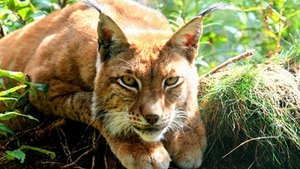
Episode 15
06 March 2009 - Iron Curtain: Ribbon of Life
When communism crumbled in 1989, it created an opportunity for wildlife. The Iron Curtain that divided communist Eastern Europe from the capitalist West had created a no-man's-land protected by barbed wire and minefields - a last haven for many rare animals and plants. This film tells the story of the movement, led by biologist Dr Kai Frobel, that set out to save the wildlife of this precious strip. Now as we celebrate the 20th anniversary of the fall of the Iron Curtain, we can also celebrate the birth of the biggest conservation movement in the world, a ribbon of life stretching 13,000 kilometres across Europe, protecting everything from bears and wolverines in Finland to rare eagles in Bulgaria.
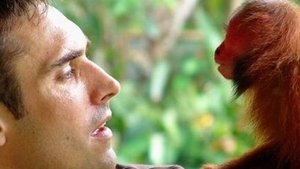
Episode 16
26 March 2009 - Uakari: Secrets Of The English Monkey
In the flooded forests of the Peruvian Amazon lives one of the world's rarest and most mysterious primates, the red-faced uakari monkey. Local people call them English monkeys because of their resemblance to sunburnt visitors. Now there is a new Englishman on the scene, Mark Bowler, a young biologist who battles through the forest in his quest to understand the monkeys' secret lives. The film shows the first footage of these extraordinary animals in the wild and reveals why ice cream could be the greatest threat to their survival.
Crew
| Department | Role | Name |
|---|---|---|
| Department | Role | Name |

